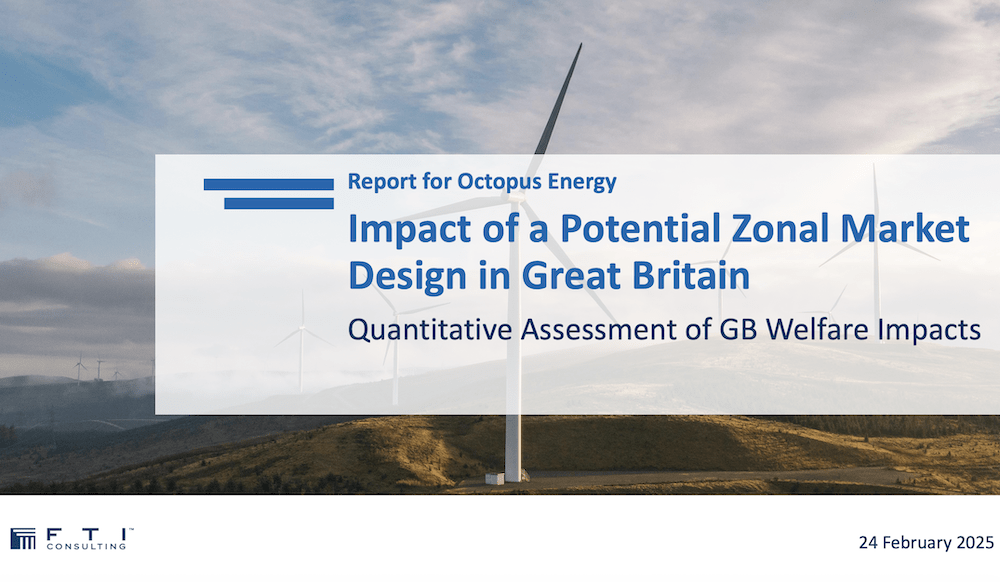British customers could save between £55-74 billion by 2050 on electricity bills if the Government adopts zonal pricing, according to a new report by FTI Consulting commissioned by Octopus Energy.
The UK currently operates under a single, nationwide electricity pricing system, a legacy of the fossil fuel era that is no longer fit for purpose, Octopus said, resulting in some of the highest power prices in the world.
Countries like Norway, Sweden, New Zealand, Japan, and much of the US have already adopted locational pricing, which adjusts electricity prices regionally based on local supply and demand.
This allows for more efficient use of the grid, reducing unnecessary costs and inefficiencies, it said.
The findings show zonal pricing could save consumers an average of £3.7 billion a year, rising to as much as £5bn annually if there are delays to planned infrastructure.
This is a significant increase in the bill savings estimated by Ofgem and FTI in 2023, with potential for further benefits in protecting customers from delays to new infrastructure, the report added.
Zonal pricing could mean fewer pylons and creates economic growth potential in places like Scotland where new energy-intensive industries – such as data centres – could locate and benefit from some of Europe’s cheapest electricity.
Greg Jackson, Founder of Octopus Energy Group, said:
“Either Britain sticks with an outdated pricing system that leaves consumers exposed to skyrocketing bills, or adopts zonal pricing and saves over £4 billion a year.
“Zonal unlocks massive savings by encouraging energy to be used nearer to where it’s produced, and at those times it is plentiful, rather than wasted.
“With the potential to ease any burdens in infrastructure delays, the government can embrace a modern system that delivers cheaper, fairer energy while also protecting us from shocks further down the line. The evidence is overwhelming – zonal pricing is the way forward, and we need action now.”














